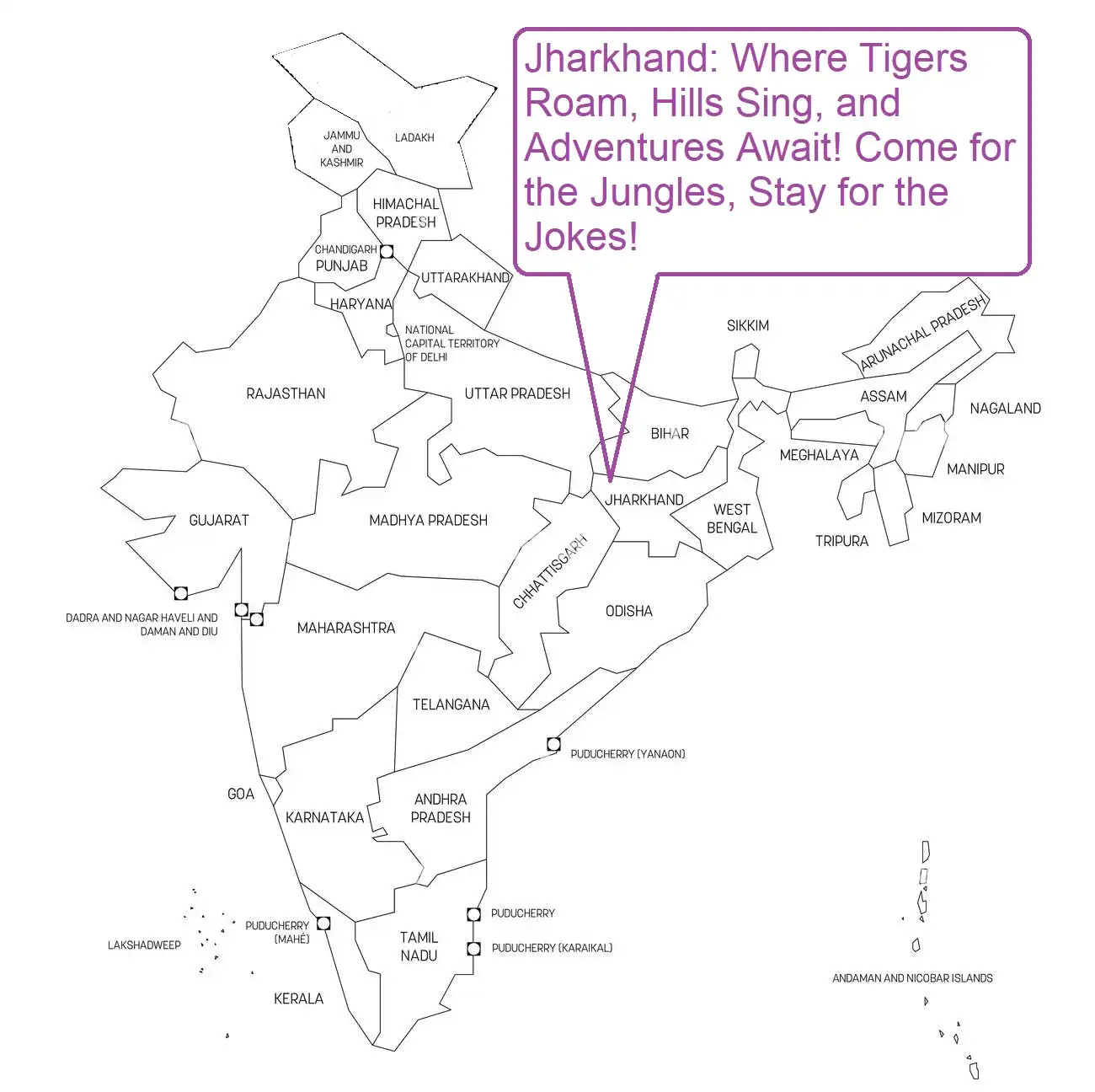1. Introduction to Jharkhand
Jharkhand, which means "The Land of Forests," lives up to its name with its extensive greenery and wildlife. It is home to some of India's most beautiful waterfalls, national parks, and wildlife sanctuaries. Beyond its natural wonders, Jharkhand has a rich cultural and historical legacy, with ancient temples and sites that trace back to the Jain and Buddhist eras. Whether you're an adventure enthusiast, a nature lover, or a history buff, Jharkhand has something special for you.
2. Top Places to Visit in Jharkhand and Their Best Time to Visit
Best Time to Visit: September to March
The capital city of Ranchi is known for its scenic waterfalls, including the famous Hundru, Jonha, and Dassam Falls. The cooler months from September to March are ideal for exploring these natural beauties and enjoying the pleasant climate.
Best Time to Visit: October to April
One of the first national parks to come under Project Tiger, Betla National Park offers a diverse range of flora and fauna. The post-monsoon and winter months are perfect for wildlife safaris, bird watching, and enjoying the lush greenery of the park.
Best Time to Visit: October to March
Often referred to as the "Queen of Chotanagpur," Netarhat is famous for its breathtaking sunrises and sunsets. The cool climate during these months makes it a perfect retreat for those looking to escape the hustle and bustle of city life.
Best Time to Visit: November to February
Deoghar, a revered holy city, is home to the famous Baidyanath Jyotirlinga temple, one of the twelve Jyotirlingas in India. The winter months offer a conducive environment for pilgrimage and exploring the spiritual essence of the city.
Best Time to Visit: October to March
Parasnath Hill, the highest mountain in Jharkhand, is a significant pilgrimage site for Jains. The cooler months provide a comfortable trekking experience to the top, where one can enjoy panoramic views and visit several Jain temples.
Best Time to Visit: October to March
Hazaribagh, known for its health resort and the Hazaribagh Wildlife Sanctuary, is a haven for nature enthusiasts. The period from October to March, with its mild climate, is ideal for wildlife spotting and enjoying the natural beauty of the area.
3. FAQs
Q: How can I reach Jharkhand?
A: Ranchi, the capital city, is well-connected by air with major cities in India. Jharkhand is also accessible by rail and road, with a network of highways and railway stations spread across the state.
Q: What is the cuisine of Jharkhand like?
A: Jharkhand's cuisine is simple yet flavorful, with rice, dal, and vegetables forming the staple diet. Local delicacies include Dhooska, Pitha, and Litti Chokha, which are a must-try.
Q: What should I pack for my trip to Jharkhand?
A: Depending on the season, pack light cotton clothes for the summer and warm clothing for the winter. Comfortable walking shoes are essential for exploring the natural and historical sites.
4. Online Resources for Planning Your Trip
- Jharkhand Tourism Official Website: Offers comprehensive information on tourist attractions, accommodations, and travel advisories.
- Travel Blogs and Forums: Provide personal experiences and advice on exploring Jharkhand.
- Online Travel Agencies (OTAs): Useful for booking accommodations and planning itineraries.
5. Conclusion
Jharkhand is a destination that surprises and delights with its diverse offerings. From the serene beauty of its waterfalls and forests to the spiritual ambience of its temples and the adventure of its wildlife sanctuaries, Jharkhand invites travelers to explore its hidden treasures. Visiting the places mentioned above during their ideal times can greatly enhance your experience, allowing you to fully appreciate the natural, historical, and cultural richness of this underrated state. So, embark on a journey to Jharkhand, where every corner holds a new discovery and every experience promises lasting memories.

